Note: It is four days later and I am just back from a weekend workshop in Kripalu on healing and being healed. I stayed up until 3:00 am talking about Brock Turner. My husband expressed concern that Turner will not survive his mistake. I awoke to read this message from his mother. Sometimes an issue becomes a lightning rod and people will pile on. I did. I reacted swiftly and wrote this post. I want to be responsible. I stand by everything I wrote and I believe this national dialogue is constructive. I do, however, wish I had expressed it with less judgment and more empathy.
It is easy to place the entirety of societal dysfunction and angst upon a hapless young man, a protective father, and the sentencing judge. I am constantly reminded that that “other is us.” Always. I can relate to female survivors of sexual assault and have endless compassion for what women endure. I believe I’m now meant to extend myself to truly feel compassion for Brock Turner, his parents, and Judge Persky. I fervently pray that my children will never make such a grave, life-altering mistake. But what if? Would I want grace extended to my son? Would I do what I could to commute his sentence? I just saw a photo of Judge Persky and recognized his face. We were at Stanford together and graduated from the same International Policy Studies program. My memory of him? A thoughtful, conscientious, and kind young man. This stopped me cold in my tracks. He is no longer an anonymous Every Judge.
Brock Turner did not invent white privilege. His parents are not the only entitled, clueless parents. Judge Persky was asked to weigh the evidence, include extenuating circumstances, and serve justice. Yes, we must ask probing questions what happened. But I would do well to ask myself a few questions, too. In what ways am I privileged and entitled and clueless? What would I have done had I been in Judge Persky’s shoes? It’s so easy to pass judgment. Do we want to be right or do we want to help heal the planet? It’s more challenging to be truly constructive. I’m most grateful to friends who love me enough to tell me what I need to hear, in ways that can be received, and who will support me through my struggle. I’m grateful for this national conversation that shines a light on inequities and holds a mirror up to our shadow selves. Might we be better served by directing our outrage towards positive change rather than a punitive kind of flagellation? Is it possible to advocate for justice in a way that can help lift us all?
I’d love to hear what you think. Sending survival level gratitude to my tribe, my safe place where I am seen, held up, and challenged to grow ❤️
***
A 19 year-old Stanford athlete is found guilty of sexual assault. He blames party culture and peer pressure for his transgression. His father writes an “impossibly offensive defense” of his son. The judge agrees and gives him a lenient 6-month sentence because he is concerned about the “severe impact” prison will have on him. An activist group labels this “rape culture at work” The media publishes baby-faced high school photos of the perpetrator because it took months for Stanford and local authorities to release a mug shot.
Oh, we are outraged.
We are taking a closer look at what this means and it doesn’t feel good.
Do we understand what rape does?
I am a woman. I do not navigate the world with fear but I am also not naive. I look carefully before entering a stairwell or an elevator. I don’t like empty parking lots. When I was 17, one of my teachers was raped in the early evening while walking back to our dorm, along a route that I took multiple times a day. I’ll never forget the look on her face and the faces of my housemates. It changed us.
The actual violation is only part of the violence. The rest of it comes as we understand how it is perceived through the lens of others. How do we feel, as a society, when someone uses physical strength or other advantages to overpower, take advantage of, harm, and steal from another? Are we lenient? Do we send a strong message? Are we consistent? Do we mince words? And what do we think happens to the survivor when the power structure sympathizes with the attacker?
If we do just one thing, I hope everyone will make time to read and share the 12 page victim impact statement. Don’t skim it. Sit down and pretend that it’s written by a sister, a daughter, a spouse. I had difficulty choosing a couple of excerpts.
I was not only told that I was assaulted, I was told that because I couldn’t remember, I technically could not prove it was unwanted. And that distorted me, damaged me, almost broke me. It is the saddest type of confusion to be told I was assaulted and nearly raped, blatantly out in the open, but we don’t know if it counts as assault yet. I had to fight for an entire year to make it clear that there was something wrong with this situation…
My independence, natural joy, gentleness, and steady lifestyle I had been enjoying became distorted beyond recognition. I became closed off, angry, self deprecating, tired, irritable, empty. The isolation at times was unbearable. You cannot give me back the life I had before that night either. While you worry about your shattered reputation, I refrigerated spoons every night so when I woke up, and my eyes were puffy from crying, I would hold the spoons to my eyes to lessen the swelling so that I could see. I showed up an hour late to work every morning, excused myself to cry in the stairwells, I can tell you all the best places in that building to cry where no one can hear you. The pain became so bad that I had to explain the private details to my boss to let her know why I was leaving. I needed time because continuing day to day was not possible. I used my savings to go as far away as I could possibly be. I did not return to work full time as I knew I’d have to take weeks off in the future for the hearing and trial, that were constantly being rescheduled. My life was put on hold for over a year, my structure had collapsed.
Rape may not be murder but make no mistake… it creates an irrevocable kind of rupture because it sends the message that we are no longer safe. It destroys lives. But not this one. People the world over are cheering for this woman. Despite so much disappointment, she found her voice and it soars.
Are we willing to sit with the idea of racism?
We are decades past Jim Crow laws and Archie Bunker crassness. We celebrate Martin Luther King Day. We know what it means to be politically correct. But we also know that racial tensions are real… and explosive. Are we willing to take a hard look at racism 2.0?
I am Chinese American, the first generation in my family to be born here. I know what racism looks like… even by well-intentioned people who tell me that I’m so normal, they don’t even think of me as Chinese… even by those who say that Asians are so smart, we’re not really minorities. I say this somewhat tongue-in-cheek because I know how fortunate I am — beyond measure. But my heart has always been with the underdog. I have understood, all my life, what it’s like to not quite fit in. Maybe it makes it easier for me to ask these questions.
Specifically…
If the perpetrator is white, do we relate to our sons… and if the perpetrator is black, do we relate to our daughters?
Are black men punished more severely than white men for the same offense?
If you rub elbows with powerful people at your country club, can you pick up the phone and make a problem go away?
Do these people tend to be white more often than not?
I am haunted by stories about people who matter less because of the color of their skin.
Like this one from black former football star, Brian Banks. At age 16, he was wrongfully accused of sexual assault. Banks agreed to plead no contest and lost five years of his life to prison (along with his hopes of an NFL career) rather than stand trial where he faced a 41-year to life sentence if jurors believed his accuser.
Where was the abundance of concern for this boy?
Do we understand how privilege works?
Privilege is power. Who makes the laws? Who skirts the laws with relative impunity? If you want to know how a society works, look at how our most vulnerable are treated. We know this.
Whatever you did for one of the least of these brothers and sisters of mine, you did for me. – Matthew 25:40
Our country is losing its middle class. More and more people feel that things are less and less fair. The rich are getting obscenely richer and passing extreme wealth onto their children. Established interests protect themselves. The deck feels stacked and people are understandably angry. Privilege manifests often and in surprising ways.
I recently learned that some of my junior high school friends and many other girls, now women, were repeatedly abused by a trusted teacher only to come up against successive school administrations, from 1963 to 2000, that were notified but remained in denial. My school allowed a pedophile to continue to teach and host overnight 7th grade school trips. Young girls were molested for 37 years. School officials finally apologized in 2014, ten years after the molester committed suicide.
There were so many reasons why these guardians and stewards, in whom thousands of parents trusted their kids, did nothing. The interests of the school, the administration, and the molester were privileged above those of the children. Bystanders looked away. When the apology finally came, there was no crisis of conscience. It happened because the survivors dared to tell their stories again, and vast numbers of alumni signed class letters, threatened to withhold donations, and vociferously demanded that the school do the right thing.
It was a horror show and I remain profoundly repulsed.
My activism focuses on children’s health. I’m especially concerned about the deleterious effects of corporate corruption and government inaction, and how institutionalized “rules of the game” leave our most vulnerable out in the cold. This is especially true for women and their children who don’t even know there’s a game being played, let alone that there are rules — up for grabs to the highest bidder — that do not serve them. Elites are enriched. Bystanders and participants look away. Mothers are insulted and invalidated when they speak out. Women and children disproportionately bear the brunt of this shameful exercise of power.
Hey, parents… are we failing our kids?
I am a parent of two boys. My 15 year-old son is discussing this at school. And I’m discussing it with both of them at home. No is no, even (and especially) when no one is looking. We must look out for each other and above all for those who are more vulnerable, for any reason. There is no substitute for doing the right thing. The alternative is the wrong thing. This is a teachable moment and it’s a responsibility for all of us.
But it’s not so easy to make this okay. I look in the mirror and I’m unsettled. Parenting is comprised of many little actions. What do we do — in the name of fear, love, pride, shame, caution — that emotionally cripples our kids?
What do children learn when we give them what they want… intervene to solve their problems… reward achievements… make excuses for shortcomings… and pull strings to make opportunities magically appear?
Do we tell them, “No, I’m not going to give that to you but maybe you could work to earn it?” Do we let them stumble and fall and fail? Do we allow for natural consequences to be the teacher? Do we offer praise for the right things? Do we give them a chance to find out if they are hungry enough to make something happen for themselves?
How do we teach compassion?
When a dad runs interference and produces a light sentence, what does this teach his son?
Do entitled children become entitled adults? Are we so busy trying to get them into club sports, Carnegie Hall, and Harvard that we send the message that they’re very, very special? Do they learn that athletic prowess means the rules don’t apply to them? Do we become the clueless dad who laments that his son will pay such a steep price for “20 minutes of action” and conspicuously fails to acknowledge the grievous harm done to another? Do we then wonder how the son can write that he wants to show people that one night of drinking can ruin a life (i.e., one life, his).
I am a Stanford grad. Many of us are parents. Brock Turner will be called the “Stanford rapist” for a long time to come. Do we regard this as a one-off incident and mutter something about how it happens everywhere? Do we recognize his father?
Stanford’s Frequently Asked Questions Regarding Handling of Sexual Assault Cases at Stanford page is being updated. I found this 2014 post by an outraged Stanford rape survivor whose assailant was found responsible for sexual assault and received a five-quarter suspension plus a requirement for 40 hours of community service and completion of a sexual assault awareness program as punishment.
After all, we wouldn’t want to ruin a promising future now, would we?
***
Rape. Racism. Privilege. These are heavy topics that resonate deeply. It is a tragic story about a promising young man who made a terrible decision. But it is also a cautionary tale for our society, and for parents, about the ways that we continue to fail survivors of sexual assault, people of color, and, yes, guys like Brock Turner.

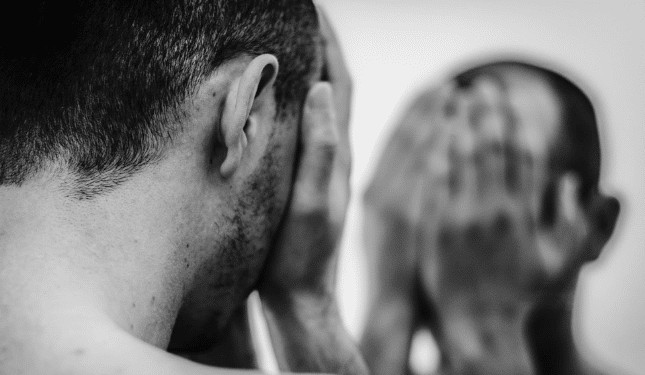





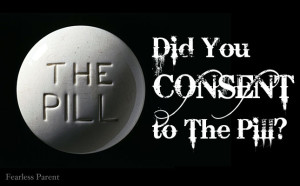
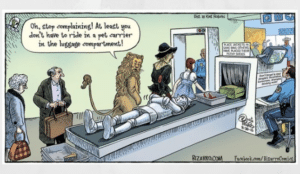
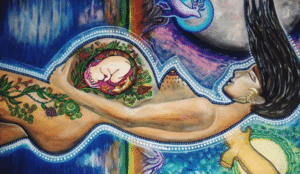
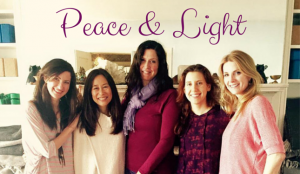


Louise, what a powerful post! It was so compelling. Nice job.
How do we as a society get past discrimination? You have highlighted the ways it rears its head with clarity and laser perception. With 2 of my adopted kids from China we have always been conscious of the subtle forms of discrimination everywhere. We joke endlessly within our family about “who’s more Chinese” or things that “white people do.” My husband is fluent in Cantonese and tells us the words used for white people that mean “ghost.” We have addressed it more laughingly than anything else.
When the kids were little we lived in the pacific on a small island (Kwajalein) for 10 years and there was a complete mix of Marshallese, Japanese, Chinese, American, Polynesian and Afro-American who lived there. The total population was 2500, so everyone was ‘family’ and these was NO discrimination at all. When we moved back to the States, one day my son came home and said, “They think they are open-minded here, but there’s so much blatant discrimination.”
I think this early upbringing (and the subsequent contrast) did more to teach my kids about discrimination than anything else. Certainly more than any words or lessons!
Much love to you….
Thank you for writing this, Louise
I can’t find the right words, I keep going back to what Cornelia said. Thank you Louise for writing this.
So very powerful! Thank you
Thank you for writing this I really adore you !
Thank you, Louise x
Every parent should read this through
Excellent article. I shared it on Brian Banks’s page and here wanted to share his reaction to This case. You both are so eloquent.
Powerful post by Louise Kuo Habakus
Thought-provoking.
Another look. A different perspective. A higher perspective? Do we want to be right or do we want to heal the world? I am that.
Debbie Ford is smiling down on you!
You have such a beautiful soul, Louise. Everyone struggles with quick judgement, especially in cases like this. But I agree with you. I have to share an experience I just had on Friday:
I was working at my 4 year olds school with ten other 3-4 year olds. Over the course of the day, there were several disagreements between the kids. I acted, of course, mostly suggesting compromise. But throughout these moments, I kept having the same experience. The child would look at me dead in the face with a look of judgement. A pure, truth seeking, question- are you being fair to me?
And I realized, this form of pure judgement is so powerful. And, in my opinion is the only acceptable judgement of others. A pure, truth seeking, are you being fair and just to me right now? It’s curiosity mixed with our innate need as humans for fairness. Innocent eyes searching my energy waves for justice.
Of course, children rely on us for this perspective and equally of course it’s our duty to do our absolute best to strive for fairness. But don’t we as adults also constantly look to one another for the same equality? The same understanding of fair?
We can only grant this pure form of judgement as adults, when we set our own belief systems aside and allow empathy of another’s perspective weighed against the empathy we have for ourselves or the other person involved’s perspective.
It boils down to soul work to me. Asking the question, through basic , pure instinct of judgement and seeking a truth in our question is our human expression of seeking justice and equality. All while using innocent eyes. If we use our innocent eyes to ask about judgement, we seek truth. If we are fueled by our own emotions and preconceived beliefs, we seek a form of judgement that is skewed.
Bottom line to me is this is earth and shit happens, loving one another is our tool.
This young man chose a path, this experience put him and his family as well as the young woman and her family on a path. All paths lead to learning.
Who are we to judge the path of learning for those individuals?
Without injustice, can we successfully learn?
Love to you, sweet soul, and thank you because as I write, I learn 😉
Afterthought- I don’t mean to down play rape in anyway. I also have experienced a terrible interaction. But learning always blossoms us and that’s the point I wish to make. Until we can all come the deeper understanding of the injustice we harbor in our own hearts, anything other than a loving, truth seeking perspective is a waste in my opinion.
Beautifully expressed Louise
Thank you for sharing this Louise. We all have a lot of deep thinking and souls searching to do, and more than anything I love that this conversation is happening in a big way.
I was raped 5 years ago and I don’t hate the man who raped me, or Brock turner, or his parents, or Judge Persky.
Part of the problem is that our justice system is inherently punitive. It’s not an enlightened model of justice. But for some reason it is in “victimless crimes” against women’s bodies that we are “invited” to extend compassion to offenders. Not in cases of car theft, or marijuana possession, or so many other crimes.
The truth is, we have no model for what restorative justice would look like for rape. A big piece of it, though, would be the person who rapes admitting and owning what happened and its consequences.
I don’t like the public shaming of Brock Turner. But it may be part of what we need to look for new ways to change the culture of violence against women.
“Do we want to be right or do we want to help heal the planet?” Is a great question. But we can’t lay it only at the feet of women who have been raped. Also, the precedent set in this case means anyone convicted of rape at a prestigious college (and you may not be aware, if you haven’t been through sexual assault and contemplated pressing charges, just how very very hard it is and how lucky one must be to have the kind of evidence necessary for a conviction) gets a free pass. Probation, maybe a few months in low level prison.
It is not on the agenda to extend this form of compassion to poor men of color.
Given all the issues involved I believe the movement to remove judge Persky from the bench is a movement for positive change. Take a look at Stanford Law Prof’s argument leading petition. She was interviewed by NPR.
If he was white with no money then he goes to jail. karma is instant .what he did to her he did to himself.
I agree with your words, Louise. While I am outraged at what he did, his not taking accountability, and his Father’s words, I do have compassion for his family and have prayed for his Mom. I have tried to put myself in her shoes. While it would be right for my child to be held accountable, I would also hope for grace. He may only have gotten 6 months, but he has to register as a sex offender for life. THAT is a long sentence and takes this to a place closer to justice.
You’re right. It is not for us to judge. Ask questions…yes. Learn from it …most definitely. I dont know what you originally posted, but I agree with you here. We must forgive so that others will learn to do the same. I have learned beyond the shadow of a doubt that we are bringing the sense of entitlement, lack of empathy, loss of logical thought and reasoning on ourselves through “better living through chemistry”. The blame lies on us all.
Louise Kuo Habakus you are a much higher being than I can ever hope to be. I do understand what you are saying. And instinctively I know that Turner needs a different kind of rehabilitation that may change his outlook on what he is entitled to. thanks for setting the bar so high for all of us to reach for.
An amazing post. Sadly there aren’t 50 million of you on this universe. It was so well said that there is nothing I could add to your post
Louise, thank you for writing about this. As a mother of three boys it affected me in so many ways. No mother or father would ever imagine their son doing something like this, yet it happens too often. My country was broiled this Spring by a similar issue. It was brought to light after 50 years that a swim coach, a swimmer at the time, gang raped a young girl with two others when he was in his twenties. After his prison time, he was able to become a coach and keep his past a secret. He went on to become the head of the national swimming team and coached several athletes who became Olympic medalists. The issue created a national conversation about the culture of rape among athletes, and also about forgiveness and redemption. I do believe that Stanford failed both this young woman and Brock Turner. Universities are all too keen to look the other way at college drinking, sexual assault by athletes and even coaches.
exactly Louise….thank you for this eloquent post that speaks of personal responsibility.
Yes Louise!!!
love you.
Very often, while the justice system is far from perfect, the media often leaves out details to make a party look bad to the unsuspecting public. Hot coffee and McDonald’s is but one of many examples. I don’t know the circumstances of this case, so I can’t intelligently comment on the matter. I think that the public should hold a rebuttable presumption that Judge Persky’s sentence was just. Many people are fuming simply because Brock comes from an affluent background, and they are unable to see beyond their petty hatreds. If an affluent person commits a crime, that person should receive the same sentence, under the same circumstances, as anyone else. I don’t know if this were a jury trial, but jury trials are less predictable than bench trials.
I’m sensitive about this because my father is a retired judge. The judiciary is, by far, the least corrupted branch of government. I don’t know anything about California’s legal system, but in Kentucky, if there is a jury trial, the jury determines both the verdict and the sentence. While I was interning at the Campbell County Attorney’s Office, I watched a jury trial in a DUI case where the jury convicted an attractive young white woman from an affluent background based solely on the officer’s testimony (no potential racial components to this verdict). Were I on the jury, I would have voted for acquittal, and not backed off. I could just tell that there was a feeling among the middle-aged women on the jury of “F that young, pretty, and rich b-word!”, not caring that the state’s case was weak. In Ohio, the jury determines the verdict, but the judge determines the sentence.
In 1981, my father subbed for a judge who suddenly couldn’t preside over a rape trial (I don’t remember the reason). Jury trials are a right we have inherited from ancestry, and they are important. Justice must be held accountable to the people. But, as I mentioned before, they are less predictable than bench trials. One of the most difficult types of evidence is eyewitness testimony. The victim had, in fact, been robbed, raped, and shot in the neck. She pointed him out in the courtroom that day and said that he was the perpetrator. She wasn’t lying, but she was mistaken. The jury believed her, and didn’t believe him because he admitted to have been smoking marijuana that day, and admitted to being in the general area. My father’s recollection is that he didn’t think there was enough evidence to convict him, but there is a very high standard to overrule the trier-of-fact’s decision, and this was not such a case. This was before DNA evidence. My father handed out a sentence commensurate with robbing, raping, and shooting a woman in the neck, as the jury had found the defendant to have done. Randall Lynn Ayres (google him) spent almost nine years in prison before it was discovered that a man of nearly identical appearance, with a long criminal record, had committed the crime. The parole board, after about three years, was willing to put him on probation if he would admit to the crime, but he wouldn’t, and spent an additional five years in prison.
I’ve been thinking about Brock and his family as well. I think about sublimated aggression and anger that gets disinhibited by alcohol. Internalized rage, wishes for power etc… that mostly remain unconscious until alcohol and who knows what else, unleash these monsters. So I agree with you. This is a societal issue. Women have made great gains and we are blessed compared to many other parts of the world, but we must continue to teach our sons, our husbands, and our brothers. Internalized/unconscious sexism and patriarchy run deep. Just like internalized racism and homophobia. I think, in some ways, we’ve done more work around racism than we have around gender issues. So I don’t know. I wish that he’d gotten a longer sentence–not for HIS punishment per se, but b/c it would have sent a message that women matter. Our bodies matter. And aggression is aggression and shouldn’t be confused with sexuality. But I also bet he regrets what he did. I wonder if he even understands why he did what he did. I’ve made bad judgements myself under the influence, especially when I was young. Nothing like rape, mind you, but I think that we should open ourselves to empathy for him. Not sympathy. Empathy. We can all say we would never…..but under certain circumstances almost everyone would do something they thought was wrong or regretful. Anyway, I rant. Thanks for posting Louise Kuo Habakus.
Mic drop moment.
Powerful and thought provoking, Louise! Well written–thank you for being you.
That’s very kind and sweet, however, there was premeditation. This was not a “drunken mistake”. He tried for her sister first, she rejected him, so to teach her a lesson he went and found the weaker more intoxicated sister. He shared pictures with his friends, a group of them. This intuition tells me it wasn’t his first time. He took advantage of someone that could not do anything about it and he knew that. So yes pray for him and his family, because this is the face of pure evil.
Great post…being less quick to judge and extending grace is so important…I agree with the fact colleges turn a blind eye to college student athletes who are accused of rape…I knew of a case where a college track star raped a girl and she couldn’t prove it…thankfully carma’s a bitch (lol) and he was eventually kicked out of school (lost his full ride scholarship) for cheating the THIRD time on a college exam…people who doubted the rape before finally starting questioning his character because of the cheating on tests..and started believing the rape maybe did happen…this kid also came from money…I think it’s a conscious choice to parent…how we parent…Parenting is hard work…I have a young son and I pray that Jesus gives me the wisdom to raise him to be a loving and tender person…that among the million conversations I have with him and the numerous situations that arise unexpectedly where I chose to stop and talk to him about, I pray for the love of God that he learns right from wrong, and has a living and tender heart ❤️
I loved your original post Louise and honor the passion behind your words. I’m an empath intuitive as well, but this POS crossed the line. As a student athlete at a top D1 lacrosse program in the early 90’s, I’ve witnessed my share of cocky white privilege from a small %, not to this extreme however (Thank God). Struggled to be around that energy outside of practice and games. I’m reminded by a meme I saw floating around that said, “the problem with being empathic is that you feel sorry for assholes too.”
Nice article drawing numerous points to attention… I am so sorry that YOU have to look in a stairwell before entering and be fearful of rape in this world… it is a messed up world on that accord…
So sad that there are people in prison for YEARS and YEARS for non violent drug offenses… meanwhile this lenient sentence for rape happens, kind of tells you the “backwards” nature of those in control of the criminal justice system today Rape should be like 30 years MINIMUM, and in many cases it should be LIFE. Non violent drug offenses should be NO TIME…. makes me SO ANGRY how messed up this society is on this level… and I still tragically hear of women being sexually assaulted all the time, total misappropriation of resources and focus… #disheartened